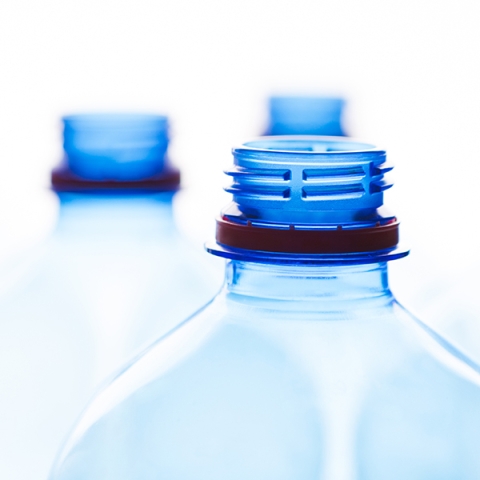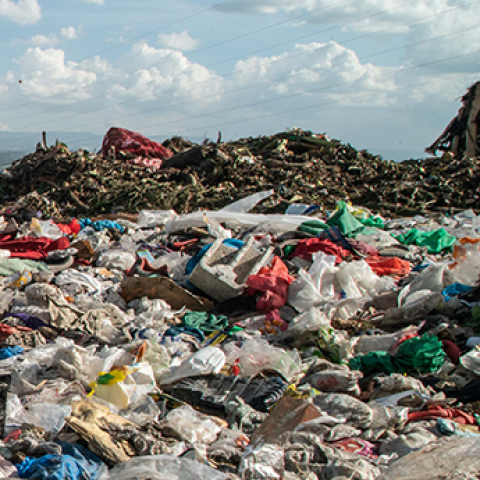
At the Centre for Enzyme Innovation (CEI), we develop biological enzyme-enabled solutions for the breakdown of commonly polluting plastics into their monomer building blocks for reuse, or as sustainable feedstocks for improved useful materials. This technology paves the way for establishing a truly circular economy for plastics, which in turn addresses one of the world’s greatest challenges — plastic pollution.
We also have a growing range of industrial biotechnology and engineering biology projects focused on major global challenges, delivered in collaboration with industry and the third sector, including sustainable solvents, carbon capture and carbon valorisation. We’re on our way, learning from the natural world, to deliver transformative low carbon and low energy enzyme-enabled technologies — and we’d love you to get involved.
Enabled through £5.9million investment from Research England E3 and £1million investment from the HM Government “Getting Building” Fund, through the Solent Local Enterprise Partnership (LEP), we’re ready to partner in ways that enhance the impact of enzyme-enabled technologies on society, the economy and the environment.
Work with us
We can support your organisation in identifying solutions that CEI enzymes and processes could help in solving and advise on routes to partnership with the CEI and the BOTTLE Consortium.
We also offer innovation consultancy for those interested in developing their products or technologies for application with enzyme-enabled technologies.
If you're interested in partnering with us, please contact Centre Director, Professor Andy Pickford at cei-innovation@port.ac.uk.
Our partners








How do bio-recycling technologies work?
Enzymes are nature’s way of performing chemical reactions: you may use them at home, in biological washing powders.
At the CEI, our enzymes break down waste plastic into its building blocks. We engineer them to work fast. What takes hundreds of years in nature now takes just days.
Once broken down, the building blocks can be purified and turned back into usable plastic. This allows for infinite recycling of the materials as part of a circular plastics economy. Compared to manufacturing from fossil fuels, we’ve demonstrated up to 80% energy savings and up to 40% lower greenhouse gas emissions, when utilising bio-recycling technologies.

Enzymes break down waste plastic polymers into building blocks that are purified and re-polymerised, allowing infinite recycling of the materials as part of a circular plastics economy.
What can the CEI offer?
Expertise
The CEI has 30 scientists covering a wide range of disciplines including microbiology, molecular biophysics, computational chemistry, biochemistry, enzyme engineering and synthetic biology, biotechnology, and more recently, polymer chemistry.
Technology
We currently have 6 filed or granted patents that underpin our commercial activities and this is continually growing.
Innovation Pipeline
Our unique, integrated research and innovation pipeline allows the streamlined development of enzymes from discovery through to recycling application. View the diagram below to find out how the CEI can support you at various stages of enzyme development.

How can you work with the CEI?
We offer a flexible range of options for collaboration that enable access to our research and innovation expertise and capabilities:
Ways to collaborate
The Centre for Enzyme Innovation collaborates on research with the BOTTLE Consortium.
The consortium is a public/private collaboration, led by the National Renewable Energy Laboratory (NREL), and operated through its network of industry, universities, government research laboratories, and other public and private agencies devoted to working together to find solutions to the plastic waste problem.
We are able to offer projects through the BOTTLE consortium focused on solutions for polymeric/plastic materials:
- Deconstruction of waste plastics
- Upcycling of waste plastics to new high-value materials
- New polymeric materials that are recyclable-by-design
Research collaboration or contracts
Develop enzyme-enabled technologies with us. Commission scalable projects that can span all four areas of the CEI research and innovation pipeline.
Collaborative PhDs
Three to four year early-stage projects that evaluate high-risk high-reward enzyme-enabled technology concepts. We are able to offer up to 50% match-funding for relevant projects.
Research project with an MRes or sponsored MRes
Nine month projects focused on developing proof-of-concepts that catalyse further collaborative projects.
Research project with MSc Biotechnology
Eight week funded projects, ideal for evaluating concepts.
If direct funding doesn’t suit your Research and Development budget, we're happy to work with you to develop collaborative bids to funders including UKRI and Horizon Europe.
KTP’s and management KTP
A twelve to thirty-six month UK government funded scheme that enables us to provide you with a graduate that help’s your business innovate and grow.
Knowledge Transfer/Exchange secondments
If your innovative business could benefit from a temporary transfer for a CEI expert, or transfer of your staff member to the CEI for up-skilling.
Through our research collaboration mechanisms, access the CEI’s bespoke collection of equipment to develop and scale your bio-technology solutions, accompanied with knowledge and expertise from CEI experts.
Full details of the facilities and equipment available can be found on the Portsmouth Research Portal, equipment.data.ac.uk and Konfer platforms.
The CEI Innovation Fellow can offer tailored support to your start-up to identify how you can access CEI expertise and facilities as well as external funding streams or investment to develop your technology and business.
Find out more
Discover more about the Centre for Enzyme Innovation and learn about Revolution Plastics, our ambitious initiative to transform the global plastics economy.
Centre for Enzyme Innovation
At the Centre for Enzyme Innovation, we are working to solve one of the most pressing environmental issues facing our planet.

Revolution Plastics Institute
From combatting microplastics to analysing plastic policies around the globe, we’re putting our research into practice, working with local groups, organisations, businesses and individuals to solve the planet's plastic problem.

